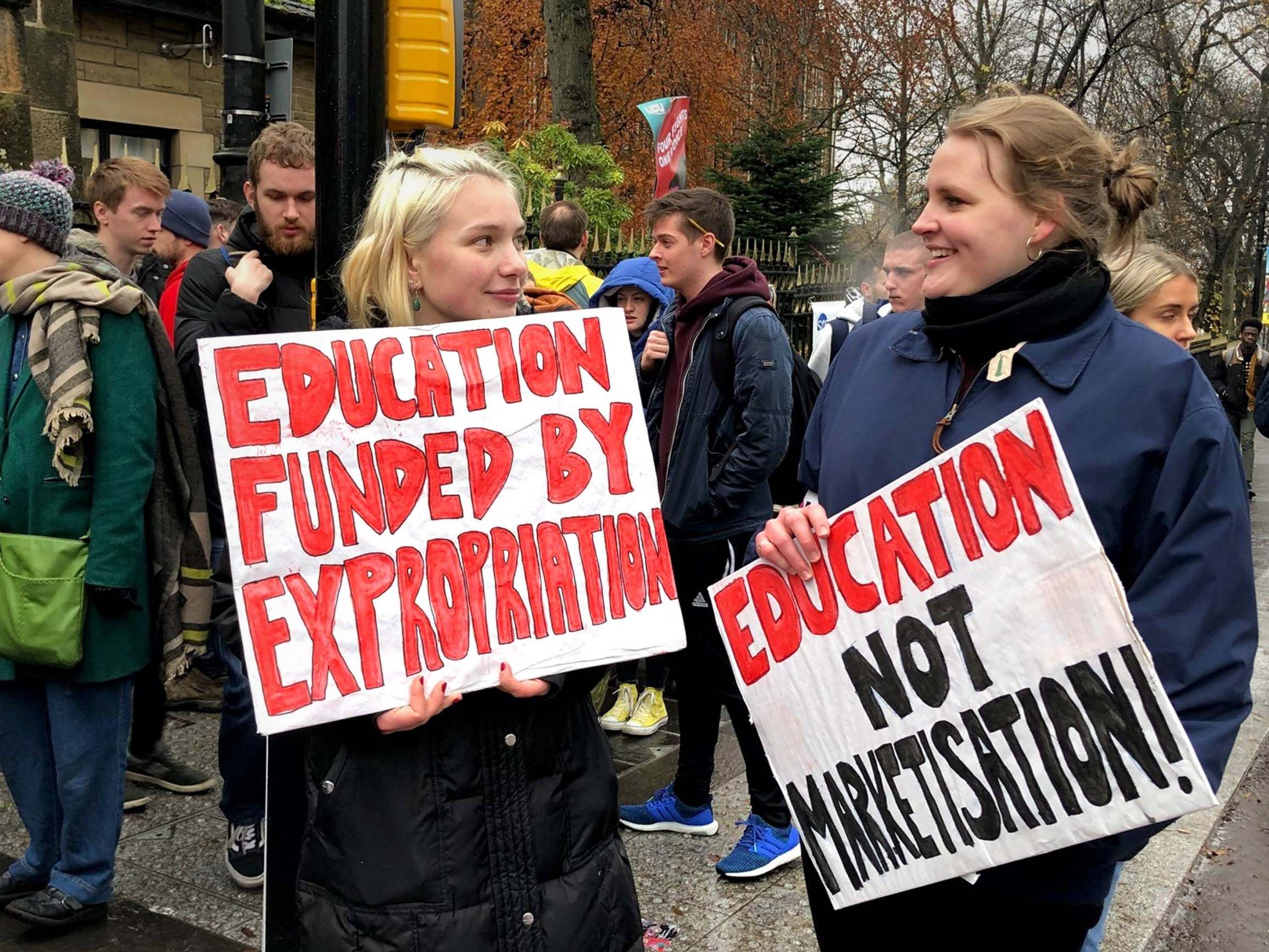University strikes: More than a million students face second wave of cancelled lectures in row over pay and pensions
Staff set to walk out for another 14 days from this month

Universities face another 14 days of strike action amid a dispute over staff pensions, pay and working conditions, the University and College Union (UCU) has announced.
More than a million students could be affected by the second wave of walkouts at 74 universities across the UK, according to the UCU.
Members of the UCU will walk out between 20 February and 13 March.
It comes after tens of thousands of workers took part in eight days of strike action at 60 universities during November and December last year.
Jo Grady, general secretary of the UCU, has warned that even more students across the country will be affected by the walkouts this term following a series of re-ballots.
She said: “If universities want to avoid further disruption they need to deal with rising pension costs, and address the problems over pay and conditions.”
The UCU has warned it will run fresh ballots to allow more strikes into the summer term if disputes are not resolved.
University employers in the pensions row said that they “regret” UCU’s decision to strike, while those representing institutions in the pay and conditions dispute said they were “dismayed”.
In 2018, universities were brought to a standstill by unprecedented strikes over pensions which saw hundreds of external examiners resign.
Some institutions were forced to pay compensation to students, who have to pay up to £9,250 a year in tuition fees, over lost teaching hours.
Students have already begun demanding refunds for the strikes which took place last term.
The new wave of action will start on 20 February and it will escalate each week, culminating with a week-long walkout starting on 9 March.
Union members will also undertake “action short of a strike” which involves not covering for absent colleagues and refusing to reschedule lectures lost to strikes.
Ms Grady said: “We have been clear from the outset that we would take serious and sustained industrial action if that was what was needed.
“As well as the strikes starting later this month, we are going to ballot members to ensure that we have a fresh mandate for further action to cover the rest of the academic year if these disputes are not resolved.”
A spokesperson for Universities UK (UUK), which represents employers in the pensions dispute, said: “We regret that UCU are planning further strike action at a time when positive talks on the future of the scheme are making significant progress and are ongoing.
“Despite this, UCU continue to request that employers pay still higher contributions at unaffordable levels.
“By law, pension costs had to rise to maintain current benefits. Employers have agreed to cover 65 per cent of these increased costs, taking their contribution to 21.1 per cent of salaries from October 2019 – together committing £250m more a year. Members have been asked to make a fair contribution too.
“The best way forward is to work collectively to secure a pension scheme that is highly valued and affordable for all.”
They added: “Universities will put in place a series of measures to minimise the impact of industrial action on students, other staff and the wider community.”
A spokesperson for Universities & Colleges Employers Association (UCEA), which represents employers in the pay dispute, said: “We are dismayed, and many higher education institutions will be so too, to see UCU’s HEC decide to ask the union’s members to once again use damaging strike action over last year’s national pay demands.
“Strike action should always be a last resort and we believe that UCU’s 70,000 members in the 147 institutions should now be given a say.”
They added: “There are new ways forward being offered by HE [higher education] employers, UCEA has made available significant positive proposals on key issues in UCU’s dispute – contractual arrangements, workload/mental health and gender pay gaps/ethnicity pay – developed following two months of talks with UCU.
“Strikes in less than half the universities in the multi-employer negotiations are not the answer and are in real danger of undermining the national collective pay bargaining arrangements.”
Join our commenting forum
Join thought-provoking conversations, follow other Independent readers and see their replies
Comments
Bookmark popover
Removed from bookmarks